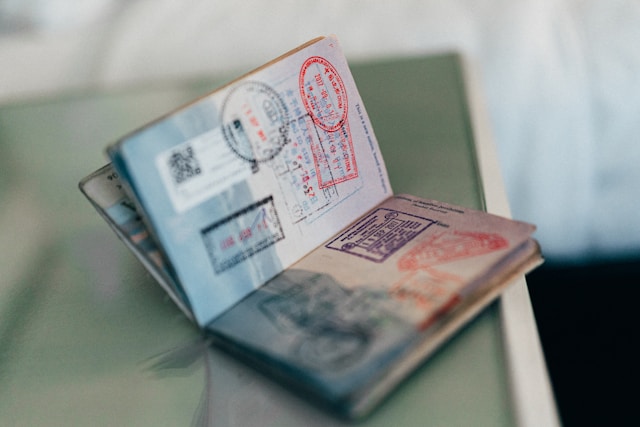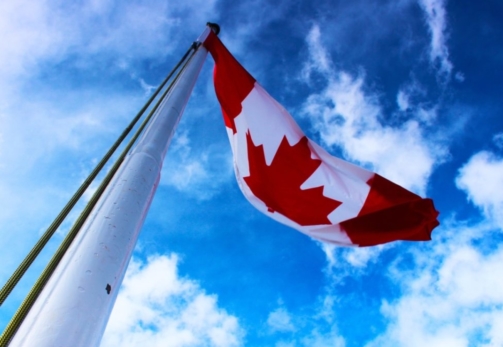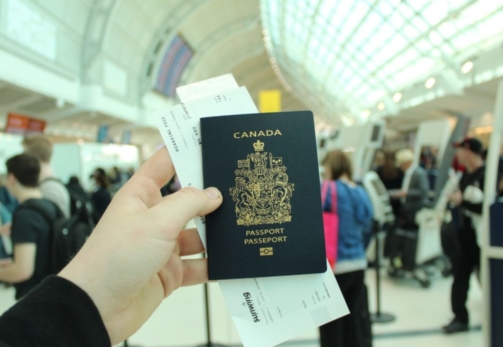Pars National
Study Visa

Canada is recognized as one of the best destinations in the world for studying, attracting many students worldwide. There are numerous advantages to studying in Canada, including high-quality education, globally recognized credentials, social safety, diverse cultural and sports opportunities, and beautiful nature and sightseeing.
To study in Canada, students need to obtain a Canadian study visa, known as a Temporary Resident Visa (TRV). This visa allows students to study in Canada, and after completing their studies, they must leave Canada by a specified date or apply for another visa, such as a work visa or permanent residency (Permanent Resident Visa).
Advantages of Studying in Canada
High-Quality Education: Universities and educational institutions in Canada are known for their high quality, with many of them performing successfully in reputable global rankings such as QS and Times Higher Education.
Multicultural Learning Environment: Canada is a multicultural and diverse society, and studying in this environment can help students benefit from cultural and linguistic diversity, enhancing their intercultural skills.
International Recognition: Academic credentials obtained from Canadian universities are widely admired and internationally recognized.
Excellent Research Facilities: Universities and research institutions in Canada boast excellent research facilities, providing students with opportunities to engage in various research activities.
Full-Time Work Opportunities for International Students: International students in Canada can work full-time during their studies, which can help them cover living expenses and gain valuable work experience.
Job Opportunities After Graduation: Upon completion of their studies, international students can access numerous job opportunities in Canada and even have the possibility of immigrating to the country.
Student Visa Types

Study Visa for Minor Students
This type of visa is valid for students under the age of 18 who wish to study in Canadian schools. Students must come to Canada with their families or with the consent of their families. Educational credentials, financial documents, and other required documents for obtaining this visa differ from those required for a student visa.

Study Visa for Adult Students
This type of visa is valid for individuals over 18 years old who wish to pursue higher education (college, university, and other reputable educational institutions) in Canada. Students must provide financial documents, educational credentials, acceptance letter from the educational institution, and other required documents to the Canadian immigration office to obtain a student visa.
What is a Study Permit?
A Teacher Permit is a special type of visa that allows individuals to come to Canada as a teacher or accompanying a teacher with their family, and engage in teaching or research at a Canadian educational institution or university. This visa is granted to individuals who have special skills and expertise in educational or research fields.
To obtain a Teacher Permit, individuals must have the necessary qualifications and experience in their academic or specialized field and must be able to effectively perform the role of a teacher at their chosen educational institution or university. Additionally, individuals must demonstrate financial capability to support themselves and their families during their stay in Canada.
Difference between Study Permit and Study Visa:
Study Permit: It’s permission to study in Canada.
Study Visa: It’s permission to enter Canada for studying purposes.
Please note that both Teacher Permits and Study Visas are usually issued for a specific duration, and you must renew them upon expiry.
In Canada, Teacher Permits are typically issued for the duration of the study program plus an additional 90 days.
These 90 days mean that after your graduation, you have 90 days to either leave Canada, change your visa status if you wish to stay, such as applying for a post-graduation work visa, or if you haven’t completed your study program by the expiry date of your Teacher Permit, you can apply to extend it
Canadian Study Visa for Married and Single Individuals
The duration of study in Canada depends on the level of education and the type of degree the student aims for. Generally, an undergraduate program in Canada typically takes 3 to 4 years, while for a master’s or doctoral degree, it might take longer, usually 1 to 3 years.
For studying at any level, students must have an acceptance letter from a Designated Learning Institution (DLI) in Canada. Without this acceptance letter, obtaining a study visa is not possible. DLIs are educational institutions located in all regions and provinces of Canada, but students should choose their institution based on their preferred area or province.
One of the advantages of immigrating to Canada through study is that the spouse of the student can apply for an Open Work Permit visa, allowing them to work in the Canadian job market. This visa is known as a work permit visa and enables the spouse to migrate to Canada with the primary applicant and work there.
When selecting an educational institution and seeking guidance for immigration and study in Canada, reliable sources such as the Immigration Canada website or experienced consultants like Pars National can be consulted.
Conditions for Canadian Study Visas for Students
Acceptance Letter: Having an acceptance letter from a reputable educational institution in Canada is essential. This letter should include details such as tuition fees, start and end dates of the study program, and enrollment conditions.
Financial Assurance: Students must demonstrate financial capability to cover their living and educational expenses in Canada. This includes university tuition fees, housing, daily living expenses, and health expenses.
Ties to Home Country: Students must provide evidence of sufficient ties to their home country to return after completing their studies. This may include information about family, property ownership, or the student’s job in the home country.
Statement of Purpose: Providing a strong statement of purpose explaining why the student wants to study in Canada and how these studies can contribute to their professional and personal growth is mandatory.
Background Check: Students should not have a background that may lead to dishonesty or ethical issues.
Age Requirements: Age may be a factor in obtaining a Canadian study visa. For some fields of study and educational programs, age may be important.
Acceptance Letter from Quebec Institutions: To study in the province of Quebec, in addition to the acceptance letter from the educational institution, you must also obtain a Quebec Acceptance Certificate (CAQ).
By meeting these conditions and providing the necessary documents, students can obtain a Canadian study visa and continue their studies in this country.
The steps to obtain a Study Vias:
- Letter of Acceptance: Get a letter of acceptance from a reputable educational institution in Canada.
- CAQ Letter (for applicants studying in Quebec): If you’re studying in Quebec, you also need a CAQ letter.
- Study Plan: Provide details about your study plan.
- Document Translations: Translate your latest academic credentials and grades into English or French.
- Visa Application Forms: Fill out the study visa application form and other related forms.
- Identity and Identification Documents: Provide scans of your passport, ID card, and their translations.
- 3×4 Photos: Obtain two 3×4 cm photos with a clear background.
- Financial Documents: Provide a financial assurance letter from the past four months and other documents related to personal assets.
- Recommendation Letters and Work History (if necessary): If required, submit recommendation letters and work histories.
After gathering the required documents in step one, carefully fill out the study visa application forms. Enter information honestly and accurately, ensuring no section is left blank.
After filling out the application forms, pay the visa and biometrics fees online and print the payment receipt.
Submit your documents and payment receipt to one of the VAC centers and, if required, provide your biometrics. Additionally, you may be invited for an interview if necessary.
Your application is being reviewed by the Canada Immigration Department, and you will be informed of the outcome.
Financial Assurance for Immigration to Study in Canada
Financial assurance is one of the fundamental requirements for obtaining a Canadian study visa. Here you can find more information about the financial requirements for obtaining a student visa in Canada:
Duration of Study: For programs shorter than one year, financial assurance to cover the expenses for the duration of the course is sufficient. However, for programs longer than one year, financial assurance to cover the expenses for the first year is necessary.
Living and Study Expenses: The average annual living and study expenses for an international student in Canada were estimated to be between $25,000 to $45,000 CAD in 2023. This amount includes housing costs, food expenses, transportation, book rentals, and other living expenses.
University Impact: Tuition fees can vary depending on the desired university or college. Studying at private universities may have higher tuition fees compared to public universities.
Documentation of Financial Assurance: To prove financial assurance, students must provide documents of their financial resources, including bank statements, financial aid, or financial support from family.
Financial Requirements for Quebec: In the province of Quebec, in addition to the acceptance letter from the educational institution, you also need a Quebec Acceptance Certificate (CAQ). Financial requirements for this province may differ from other provinces.
By meeting these conditions and providing the necessary documents, students can demonstrate their financial assurance to obtain a Canadian study visa and continue their studies in this country.
Reasons for Rejection of Canadian Study Visa Applications
Canadian study visa applications may be rejected for various reasons. Some common reasons for rejection include:
Gap in Educational Background: If there is a significant gap between your previous and current educational levels and logical explanations are not provided for this gap, immigration authorities may doubt the credibility of your application.
Financial Insecurity: Providing sufficient and reliable documentation to demonstrate financial capability to cover study and living expenses in Canada is crucial. Failure to provide adequate documentation or uncertainty about financial capability can lead to application rejection.
Unconvincing Educational Objectives: If your educational objectives and future plans are unclear or unconvincing, and immigration authorities are not assured of your return to your home country after completing your studies, your application may be rejected.
Lack of Language Proficiency Certificate: Providing a valid language proficiency certificate required for studying in Canada (such as IELTS or TOEFL) is vital. Lack of this certificate or insufficient scores can result in application rejection.
Mismatch of Study Field: If your study field does not match between your previous and current educational levels, or adequate explanations for this change are not provided, your application may be rejected.
Incomplete Application and Documentation: If your documents are incomplete or provide insufficient information, this can lead to application rejection.
To reduce the likelihood of application rejection, it is recommended to carefully review your documents and application with the assistance of professional immigration consultants who have sufficient experience in this field and provide all required information fully and accurately.
Pars National is your passport to Canada.

Tourist Visa
- Single-entry visa
- Multiple-entry visa
- Super Visa

Work visa
- Work Permit through LMIA
- International Mobility Program (IMP)
- Canada ICT Visa




